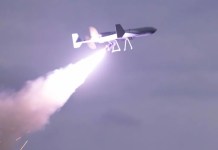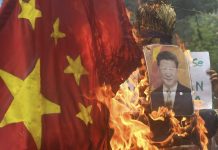US President-elect Joe Biden has nominated Antony J. Blinken as Secretary of State and Jake Sullivan as National Security Advisor. Blinken’s work with Biden goes back nearly 20 years when he was on the Senate Foreign Relations Committee.
Blinken had visited New Delhi and met top officials of the Modi government ahead of then External Affairs Minister Sushma Swaraj’s visit to Islamabad on December 9, 2015, to announce the resumption of India-Pakistan
He “played a critical role in two landmarks in India-US ties — the 2008 civil nuclear agreement, and classifying India as a major defense partner overriding congressional opposition,” an Indian daily quoted Bappaditya Mukherjee, a former professor of the State University of New York, as saying.
Sullivan is a former State Department official and a Hillary Clinton aide who played a key role in negotiating the 2015 Iranian nuclear deal.
Their nomination is being seen as a “return to normalcy and an end to an erratic approach to policy”. It also means the US taking back the space abdicated by it in international institutions, and re-working global alliances, which seemed to have given Beijing an upper hand earlier.
Unlike Team Trump, which was completely new, Biden’s team members are old hands. Indian External Affairs Minister S Jaishankar and his team are also familiar with them and their style of working.
It’s worth mentioning that Prime Minister Narendra Modi was among the first few leaders to congratulate Biden and would-be Vice President Kamala Harris.
Congratulations @JoeBiden on your spectacular victory! As the VP, your contribution to strengthening Indo-US relations was critical and invaluable. I look forward to working closely together once again to take India-US relations to greater heights. pic.twitter.com/yAOCEcs9bN
— Narendra Modi (@narendramodi) November 7, 2020
Heartiest congratulations @KamalaHarris! Your success is pathbreaking, and a matter of immense pride not just for your chittis, but also for all Indian-Americans. I am confident that the vibrant India-US ties will get even stronger with your support and leadership.
— Narendra Modi (@narendramodi) November 7, 2020
The Indian media has started calling Blinken “an old friend of India”. A News18 report said: “He (Blinken) helped navigate the choppy waters of the Senate when the Indo-US nuclear deal was ratified there. It was particularly important because while there was bipartisan support for the deal, it had to be pushed through despite some democratic opposition on the far left.”

Another report in Deccan Herald wondered if Blinken, like in 2015, would again make an attempt to broker peace between India and Pakistan.
Blinken had visited New Delhi and met top officials of the Modi government ahead of then External Affairs Minister Sushma Swaraj’s visit to Islamabad on December 9, 2015, to announce the resumption of India-Pakistan dialogue
S. Chaulia, dean at the Jindal School of International Affairs, however, said the 2015 peace talks were the result of PM Modi’s own initiative rather than the US’ intervention.
“They are not going to be bothered about Pakistan that much because they know the number one challenge in Asia is China; they are not going to look at India from Pakistan lens, unless there is a war-like situation between the two countries,” Chaulia added.
The Pakistani media, on the other hand, has been expecting that Biden and Harris’ views on Kashmir would go against India’s interest. A report in The Dawn claimed that moderator Walter Russel Mead had raised the issue of Kashmir with Blinken at Hudson Institute earlier this year.
Contrary to The Dawn’s report, Blinken had actually said, “We have challenges and real concerns, for example, about some of the actions that the government has taken particularly in cracking down on freedom of movement and freedom of speech in Kashmir…but you’re always better engaging with a partner and a vitally important one like India when you can speak frankly and directly about areas where you have differences even as you’re working to build greater cooperation and strengthen the relationship going forward..”
Chaulia believes India is going to be a linchpin for a broader coalition or alliance to counter China. “There will be greater coordination on the Quad, military deals. Greater emphasis would be on cooperating with India in the Indo-Pacific region to challenge certain regimes.
There will likely be cooperation on Myanmar, or on Maldives, Sri Lanka, or Pacific island nations. There’s going to be a lot of group activity, joint endeavors. A loose, informal anti-China block would be the main thrust,” he said.
Chaulia further said that the US will be now countering China’s Belt and Road Initiative (BRI) through alliances and will pass on the responsibility to different partners to contain China and enable those partners.




